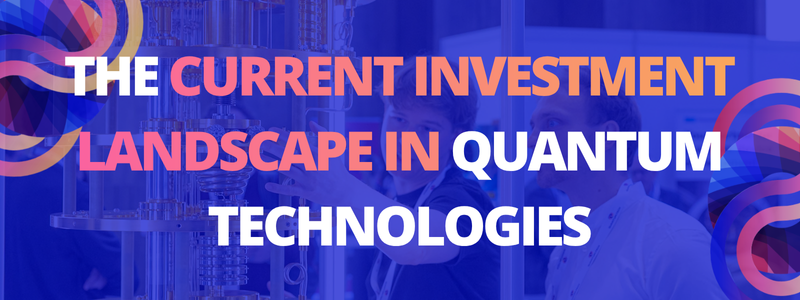The Current Investment Landscape in Quantum Technologies

The Current Investment Landscape in Quantum Technologies
The investment landscape for quantum technologies is increasingly vibrant and multifaceted. Global funding for quantum technology start-ups reached roughly $2.0 billion in 2024—an increase of about 50 % from 2023—with around one-third coming from public sources, highlighting strong government support alongside private investment. Forecasts suggest the quantum technology market could grow to $100 billion by 2035, potentially reaching $200 billion by 2040, signaling substantial long-term opportunities for investors.
A key driver of this momentum is the shift from pure research toward commercial deployment. In the first quarter of 2025 alone, investment in quantum computing firms exceeded $1.25 billion, more than double the comparable period in 2024. This surge reflects growing confidence that quantum technologies are moving beyond the lab toward real-world enterprise applications, particularly in sectors such as finance, healthcare, materials science, and national security. The emergence of larger Series B and Series C funding rounds, rather than just seed-stage deals, reinforces the perception that the market is maturing.
Regionally, North America remains a dominant hub for start-ups and capital flows, but Europe and Asia are rapidly expanding their quantum ecosystems through national programs, innovation clusters, and strategic investments. Early-stage start-ups are proliferating across these regions, with a 42 % increase in new companies over a 12-month period. Governments are actively promoting quantum technology as a matter of technological sovereignty, creating public-private partnerships, research hubs, and national missions to accelerate adoption.
Despite these positive trends, investment in quantum technologies carries challenges. Venture funding in some segments has experienced short-term slowdowns, as investors balance quantum with other emerging technologies like generative AI. Risks remain high due to uneven technology maturity, evolving business models, and uncertain time-to-commercialization. Nonetheless, investors are increasingly looking for companies that can bridge the gap between scientific innovation and practical, enterprise-ready solutions.
Quantum Computing continues to dominate the investment spotlight. Companies are racing to scale qubit counts, improve error correction, and deliver commercially viable architectures. Investors are focused on enterprise applications such as drug discovery, financial modeling, logistics optimization, and materials science. Funding is increasingly directed toward mid- and late-stage companies demonstrating measurable progress, while partnerships with cloud platforms enable broader commercial access to quantum computing capabilities without extensive in-house infrastructure.
Quantum Sensing is emerging as a high-potential segment with applications in navigation, healthcare, energy, and defense. Leveraging phenomena like superposition and entanglement, quantum sensors offer unprecedented measurement precision. Investors are particularly interested in start-ups that can transition lab prototypes into deployable products for medical imaging, geological surveying, or secure navigation in GPS-denied environments. Quantum sensing’s smaller scale, lower technical barriers, and near-term revenue potential make it an attractive target for early-stage investment.
Quantum Communications, including quantum key distribution (QKD) and other quantum-safe networking technologies, is gaining traction amid growing cybersecurity concerns. As quantum computing threatens classical encryption methods, governments and enterprises are investing in quantum-secure communications infrastructure. Start-ups and telecoms are exploring satellite-based QKD, fiber-optic networks, and hybrid classical-quantum solutions. Investment in this area is fueled by the urgent need for future-proof secure communications in finance, defense, and critical infrastructure sectors.
For investors and stakeholders, the implications are clear: quantum technologies are moving toward a commercially viable phase. Hardware, software, services, and domain-specific applications are all attracting significant attention. Companies that can translate scientific breakthroughs into real-world solutions, particularly in regulated or high-value industries, are poised to attract the most investment and define the next generation of quantum innovation.


